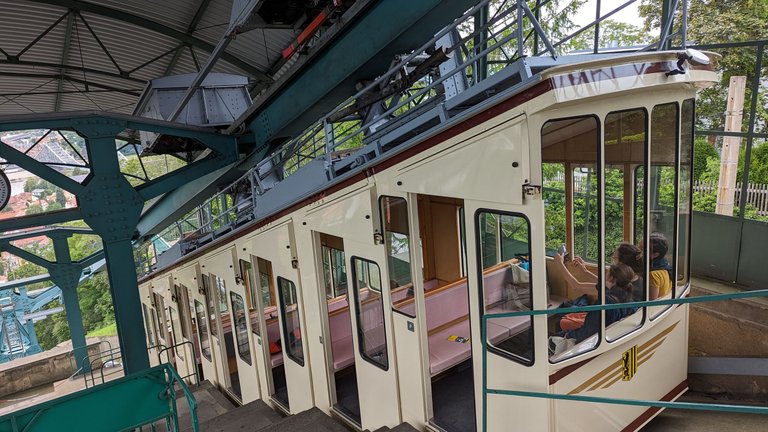
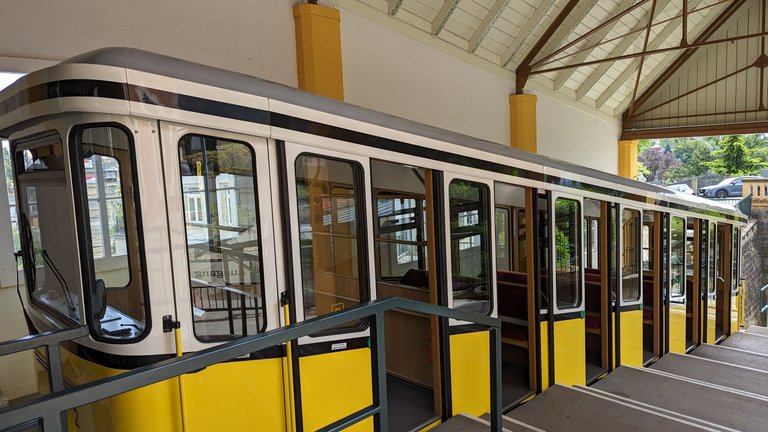
Nicht weit weg von dem Blauen Wunder, worüber ich hier geschrieben habe, verkehren die Schwebebahn und die Stadtseilbahn seit der letzten Jahrhunderwende bis heute.
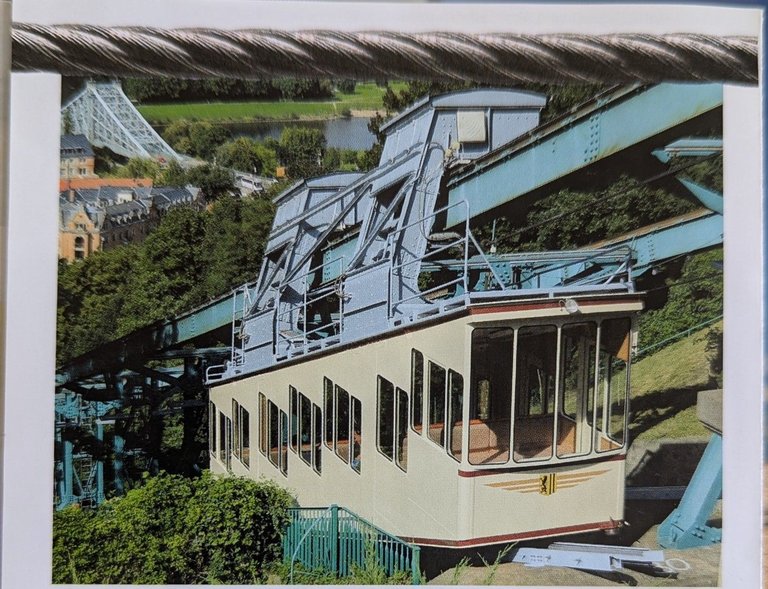
Foto aus dem Flyer der die Bahnen betreibende DVB.
Bereits die Brücke Blaues Wunder war damals eine architektonische Seltenheit, genauer gesagt die erste quasi Hängebrücke ohne Brückenpfeiler im Flußbett aus Stahlkonstruktion.
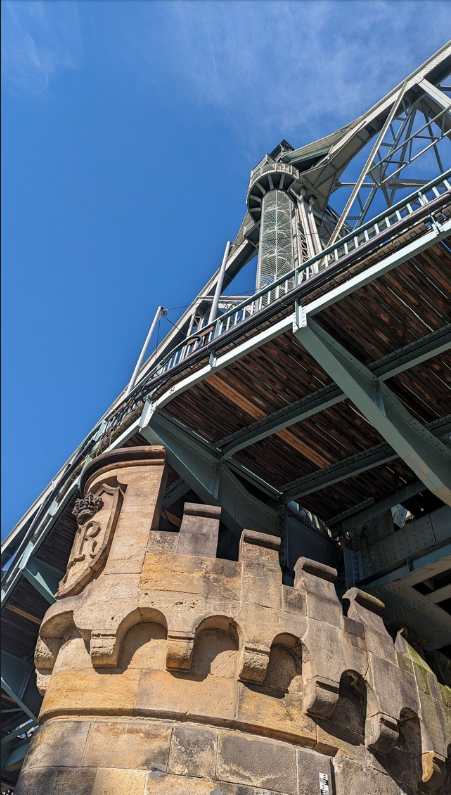
Die Schwebebahn mit Eröffnung in 1901 ist die älteste Schwebebahn in der ganzen Welt - auch älter als die Schwebebahn in Wuppertal (obwohl die Literatur dazu nicht voll im Einklang ist...), welche auch von dem Ingenieur Eugen Langen geplant wurde. Die Wuppertaler Schwebebahn ist viel länger, mit einer langen Talstrecke, die Dresdner ist eher eine Berbahn und die Funktionsweise ist ein bisschen anders als die in Wuppertal. Langen gründete übrigens mit seinem Partner Otto (Erfinder des Vier-Takt-Motors) das Unternehmen Deutz.
Mich hat auch diese stahlgrundkonstruktion beeindruckt.
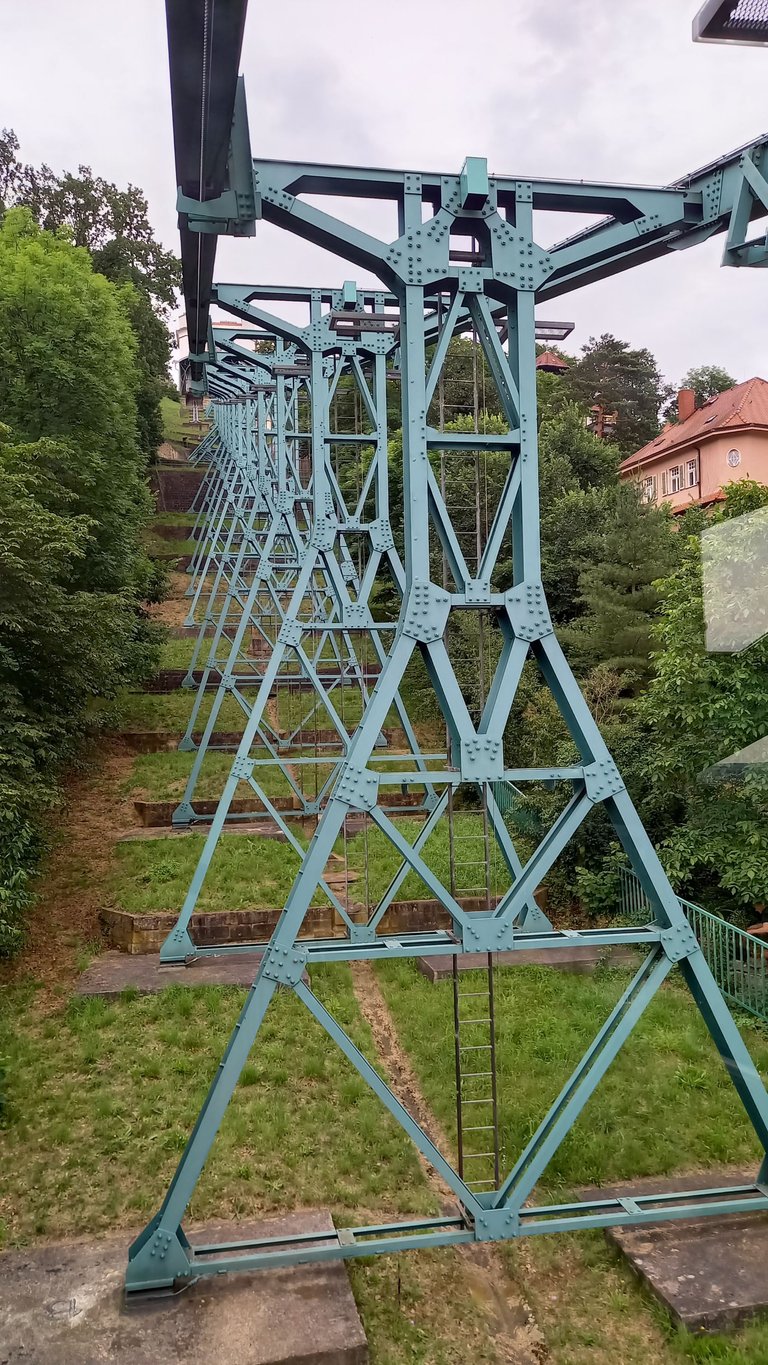
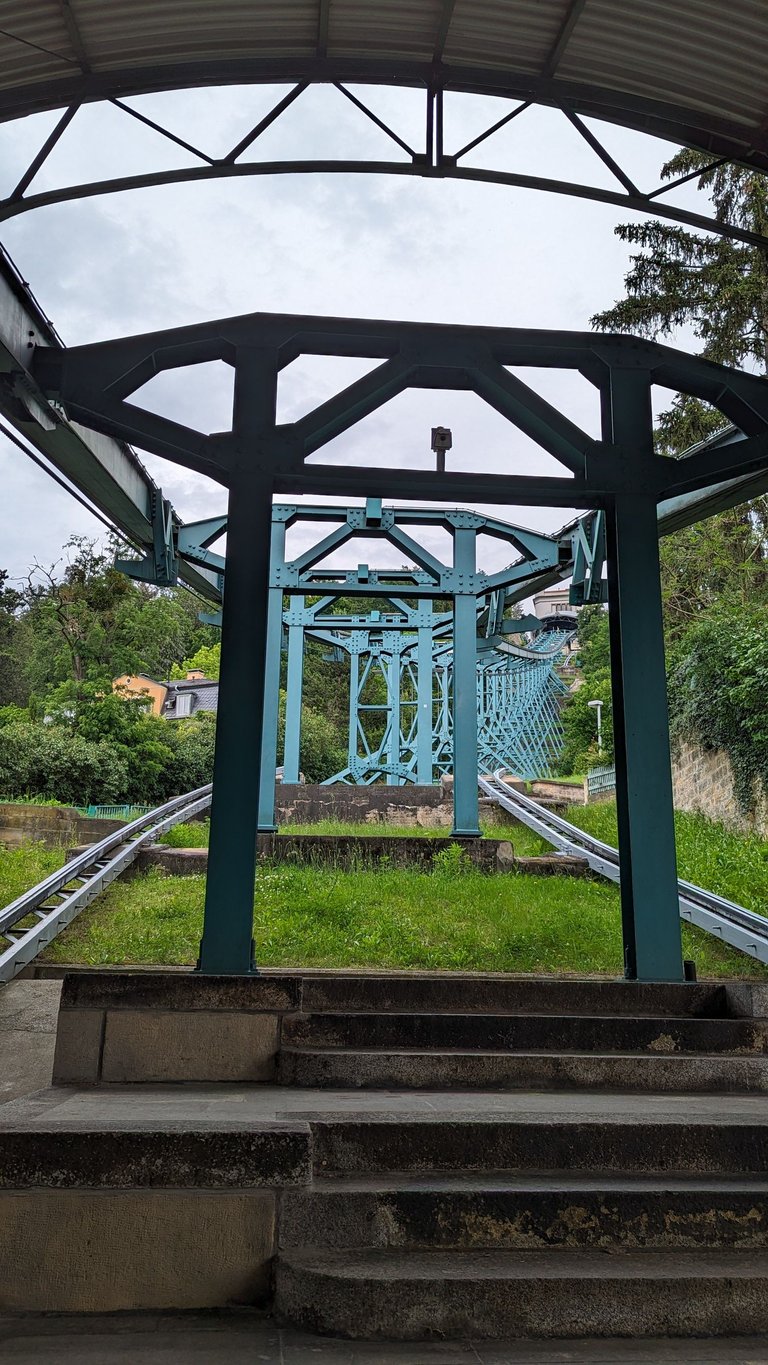
Ein Museum zu Entstehung der Schwebe- und Stadtseilbahn (und natürlich auch ein Cafe)befindet sich an der oberen Haltestelle der Schwebebahn.
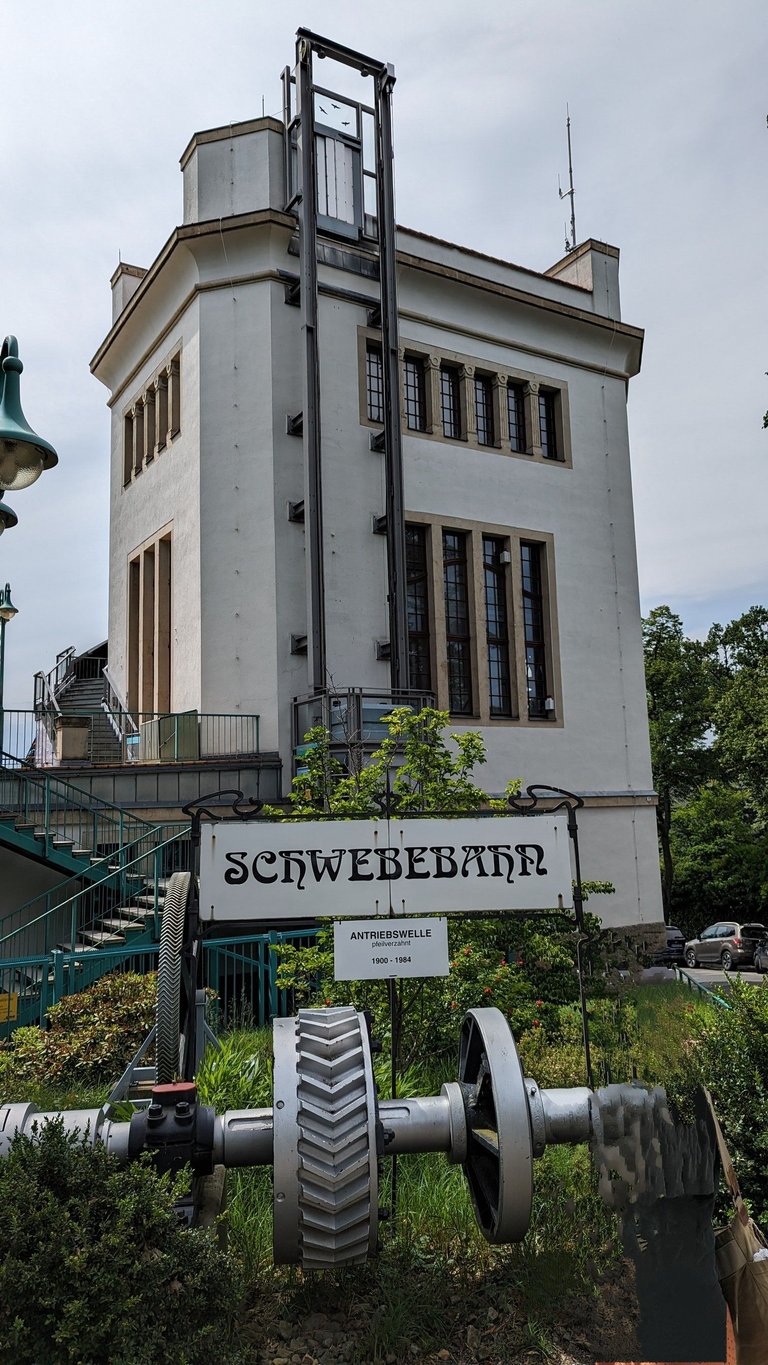
Die Stadtseilbahn ist zwar nicht die Älteste, allerdings ist sie älter als die benannte Schwebebahn. Sie wurde 1895 eröffnet, da viele wohlhabende Bürger nach Loschwitz, Weißen Hirsch (Stadtteile in Dresden) gezogen haben und ein Verkehrsmittel wurde benötigt.
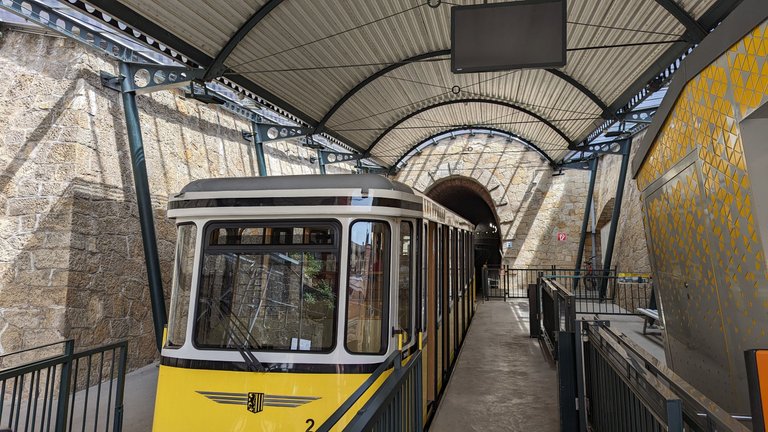
Mit einem Spaziergang von nicht mal anderthalb Kilometer, allerdings mit einem geringen ab und Anstieg können die zwei oberen haltestellen verbunden, damit zu einer Rundwanderung zusammengefügt werden.

So haben wir es auch getan, ergänzt mit einem Mittagessen in dem Luisenhof, welcher an der oberen Haltestelle
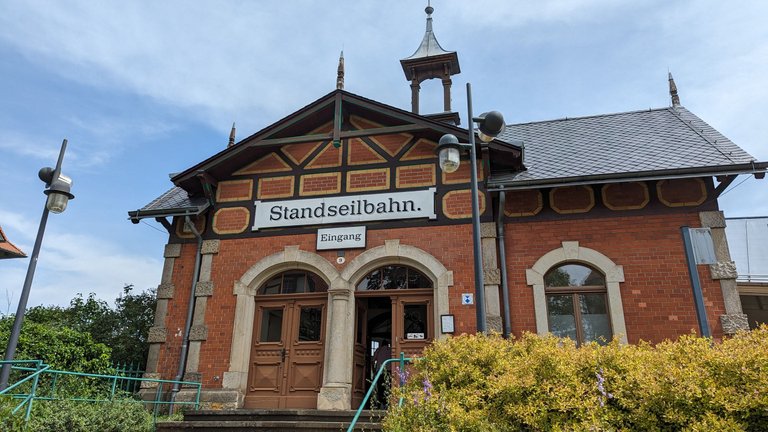
der Stadtseilbahn befindet.
Die Preisklasse in diesem Restaurant mit außergewöhnlich schönen Panoramablick auf den Dresdener Elbtal
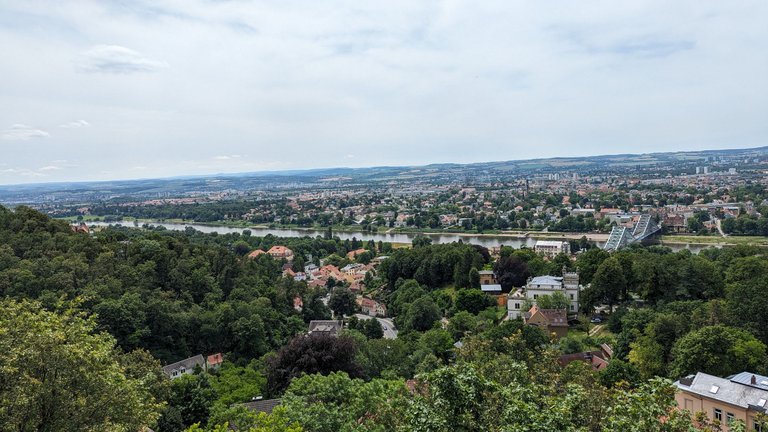
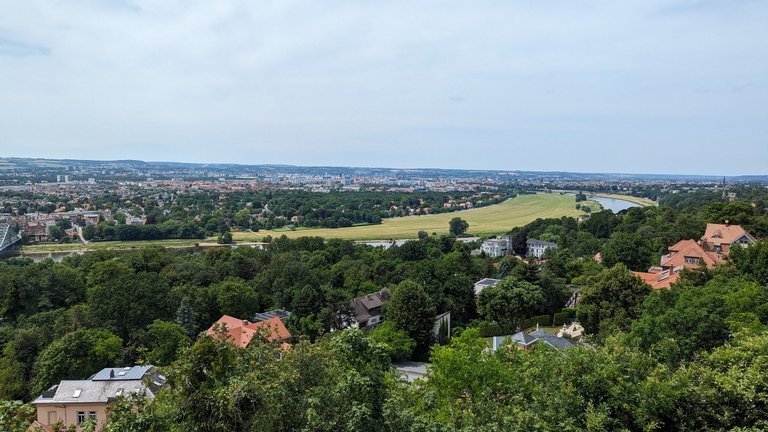
ist natürlich höher als in dem Biergarten unter dem Blauen Wunder, wo wir unser Kaffee und Kuchen am Ende unseren kleinen aber feinen Ausflug genossen haben.
ENGLISH
Not far from the Blue Wonder, which I wrote about here, there is a suspension railway and the city cable car since the turn of the last century until today and they are still working.

Photo from the flyer from DVB, which operates the railways.
The Blaues Wunder bridge was also an architectural rarity at that time, or more precisely the first quasi-suspension bridge made of steel construction without bridge pillars in the riverbed.

The suspension railway, which opened in 1901, is the oldest suspension railway in the entire world - also older than the suspension railway in Wuppertal (although the literature on this is not entirely consistent...), which was also planned by the engineer Eugen Langen. The Wuppertal suspension railway is much longer, with a long valley section, the Dresden suspension railway is more of a mountain railway and the way it works is a bit different than that in Wuppertal. By the way, Langen founded the Deutz company with his partner Otto (inventor of the four-stroke engine).
I was also impressed by this basic steel construction.


A museum about the creation of the suspension and city cable car (and of course a cafe) is located at the upper stop of the suspension railway.

The city cable car (funicular) is not the oldest, but it is older than the named suspension railway. It was opened in 1895 because many wealthy citizens were moving to Loschwitz, Weißen Hirsch (districts in Dresden) and they needed public transport, as well.

With a walk of less than a kilometer and a half, with a slight descent and ascent, the two upper stops can be connected, thus forming a circular hike.

That's what we did, supplemented by lunch at the Luisenhof, which is at the upper stop

the city cable car is located.
The price range in this restaurant with exceptionally beautiful panoramic views of the Dresden Elbe valley


is of course higher than in the beer garden under the Blue Wonder, where we enjoyed our coffee and cake at the end of our small but lovely excursion.



